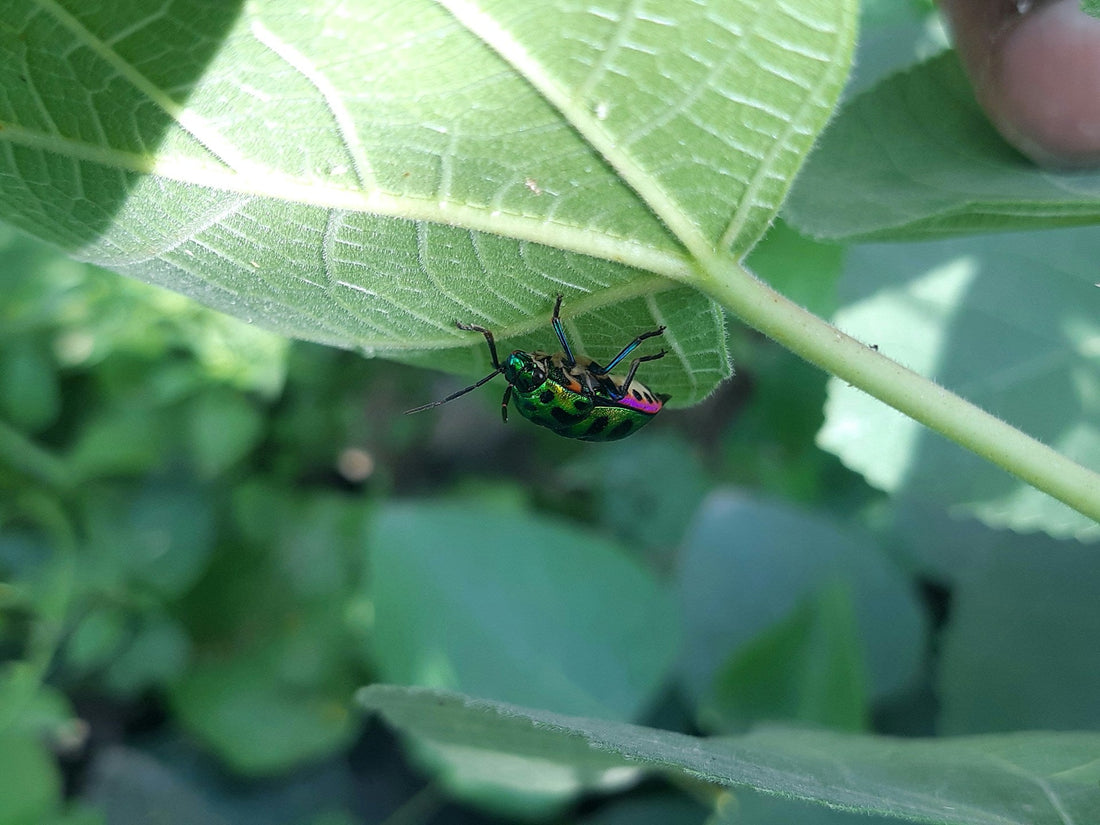
How to Attract Beneficial Insects to Your Garden
Share
Boost Your Garden’s Health Naturally
When we think of insects in the garden, we often picture pests damaging our plants. However, not all insects are harmful—many are essential allies in creating a healthy, thriving garden. Beneficial insects like ladybugs, lacewings, bees, and predatory wasps help control pests, pollinate flowers, and maintain ecological balance. By attracting these helpful creatures, you can reduce chemical use, increase crop yields, and foster a more vibrant garden ecosystem.
🌿 Why Beneficial Insects Matter
-
Natural Pest Control: Ladybugs, lacewings, and parasitic wasps feed on aphids, mites, and other garden pests.
-
Pollination: Bees, hoverflies, and butterflies transfer pollen, supporting fruiting plants, flowers, and vegetables.
-
Soil and Plant Health: Some insects contribute to nutrient cycling, decomposing organic matter, and aerating the soil.
-
Biodiversity: A garden rich in beneficial insects supports birds, amphibians, and other wildlife.
Attracting these insects is not just about adding a decorative touch—it’s a strategic approach to sustainable gardening.
🐝 Top Tips to Attract Beneficial Insects
1. Plant Diverse, Nectar-Rich Flowers
Include a variety of flowers that bloom at different times throughout the season. Native flowering plants are particularly attractive to bees and butterflies. Examples include:
-
Coneflowers
-
Sunflowers
-
Lavender
-
Marigolds
A mix of colors and shapes ensures a steady food source for insects.
2. Provide Shelter
Beneficial insects need safe places to rest and reproduce. Consider:
-
Insect Hotels: Bundled reeds, wood blocks, or bamboo tubes for solitary bees and ladybugs.
-
Mulch and Ground Cover: Leaf litter, straw, or low-growing plants protect ground-dwelling predators.
-
Shrubs and Hedges: Dense plants offer refuge for lacewings and predatory wasps.
3. Offer Water Sources
Shallow water dishes, birdbaths, or tiny ponds can attract insects that need hydration. Add pebbles or floating leaves to prevent drowning.
4. Avoid Pesticides
Chemical sprays kill both pests and helpful insects. Use organic pest control, companion planting, and mechanical removal instead.
5. Grow Herbs
Many herbs double as insect attractors and culinary plants. Beneficial insects love:
-
Basil
-
Cilantro
-
Dill
-
Fennel
These herbs offer nectar and shelter for ladybugs, lacewings, and parasitic wasps.
🌱 Seasonal Strategies
-
Spring: Plant early bloomers like crocuses and primroses to support emerging pollinators.
-
Summer: Maintain a continuous flowering garden to feed adult insects and their larvae.
-
Fall: Leave some seed heads and leaf litter to provide overwintering habitats.
-
Winter: Install insect hotels or bundles of sticks to shelter beneficial insects during cold months.
✅ Benefits of Attracting Beneficial Insects
-
Reduced Chemical Dependence: Fewer pesticides mean healthier soil, plants, and garden wildlife.
-
Better Pollination: More flowers, fruits, and vegetables from natural pollinators.
-
Stronger Garden Ecosystem: A balanced, biodiverse environment supports long-term plant health.
-
Sustainable Gardening: Encourages natural pest control and environmentally friendly practices.
By creating an insect-friendly environment, your garden can thrive naturally, saving time, money, and effort while contributing to the planet’s health.
